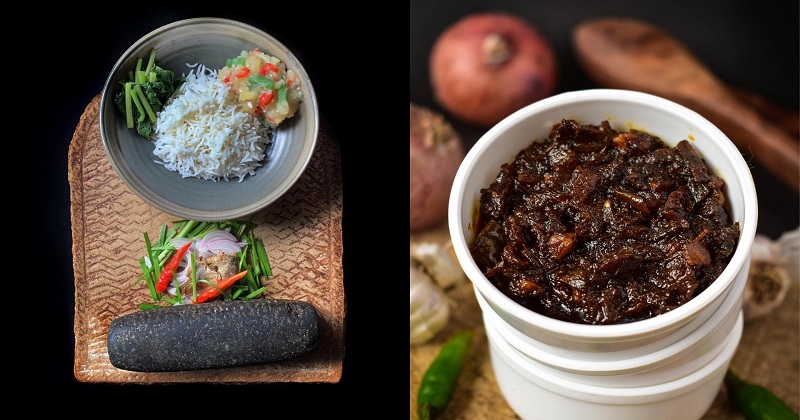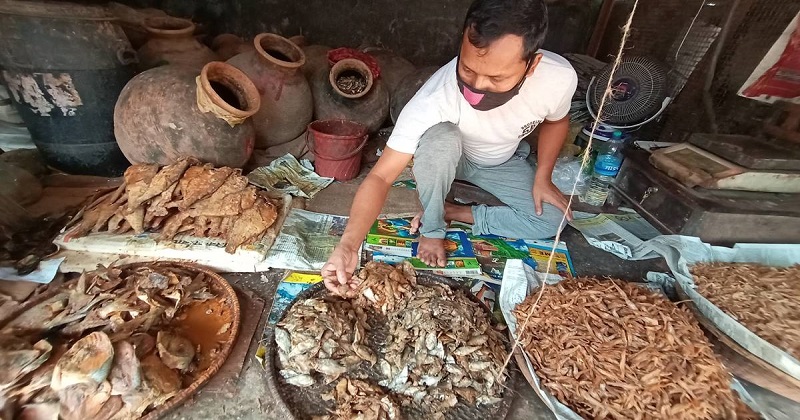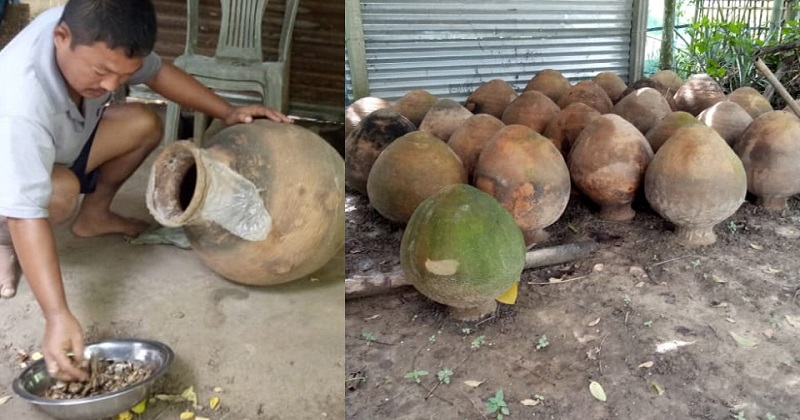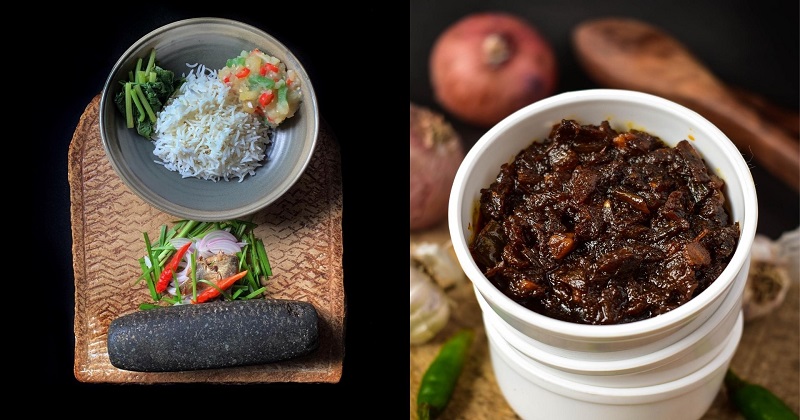
Tripura ; Fermentation as a technique is common in Northeast India’s culinary. With abundance of fishes in these states, especially in hilly rivers and streams, preservation came naturally to the local populace, to ensure availability in dry seasons.Shidol is a fish known as hidol in Assam, Tungtap in Meghalaya, and Berma in Tripura’s indigenous Kokborok dialect, indicating an adaption of the item in respective cultures.

While people seek out natural immunity boosters amid the Covid-19 pandemic, in Tripura, a local preparation has seen its sales rise up considerably the shidol,or fermented dry fish.Shidol or Berma has been eaten in Tripura for over a thousand years. While dry fishes are extensively consumed in different parts of India and in countries like Bangladesh, Myanmar and Thailand, what makes shidol special is its immunity-boosting benefits.

In Tripura, shidol bears inscribe of the East Pakistan immigrant Bengali community too.The dish is known for its pungent smell, which makes it so hard to carry, even inside layers and layers of wraps around containers.Preparing shidol involves smearing an earthen pot with oil, sun-drying it, tempering its insides with a paste made from crushed dry fish, then pouring brine and mustard oil, and finally hard-stuffing the processed fish to the pot’s optimum capacity. The pressing was traditionally done by feet, though manufacturers now use hands or wooden accessories.
The pot then goes inside a deep hole dug into the soil, covered, and left there for 4-6 months depending on the quality and quantity of fish. The microbial fermentation is catalysed by the cold, darkness and geothermal energy underground. When the pot is ‘harvested’, shidol is ready for the market.

Does shidol actually have any health benefit to it? Experts say it does.
Dr. Kuntal Manna, Assistant Professor of Medicinal Chemistry & CADD at Tripura University, told that a doctoral study to analyse the nutrient content of raw puti fish, and its processed version,or shidol, revealed polyunsaturated fatty acids, monounsaturated fatty acids, amino acids in abundance, which was increased through frying.The microbes and enzymes released during fermentation were found to contribute to good gut bacterial growth, leading to better digestive health. Also, there is an abundance of amino acids, minerals and fatty acids in shidol.
“The widespread traditional belief is that fermented fish is beneficial for common cold and flu or malaria. We haven’t found any direct relation to that, but healthy components have been found in our study – ingredients like proteins and amino acids, drastically increased due to fermentation in the dry fish,” Dr. Manna said.
“processed dry fish are preserved using brine, leaving them with high sodium content. But the product is very rich in polyunsaturated fatty acids, protein and minerals, which directly or indirectly boost immunity. Certain varieties of dry fishes were found to be richer in protein content than fresh eggs. Omega 3 fatty acids are available in high concentration in traditionally prepared dry fishes.
It helps people with cardiac problems and diabetes. But since dry fishes have high sodium content, people with heart ailments should undergo a lipid profile test and make sure their sodium, potassium levels are within the safe bracket. This might be used for boosting immunity to better combat diseases like this Covid-19,”.Dr Dayeeta Choudhury, a dietician and assistant professor at ICFAI University in Agartala
Well, that’s up to your taste. The varieties of shidol-based dishes in NE’s diverse cuisine are wide. It’s taken dry roasted in fire and mashed with copious amounts of onions, garlic and hot chillies; fried in oil, infused with fried onions, abundance of chillies, a dash of tomato and coriander leaves; mashed in a paste or boiled with bamboo shoots, lots of hot chillies, spices and condiments; even stewed with different vegetables as a one-pot dish.

Pratima Debroy, a former athlete and sports department employee said “I use it very frequently. In case of common cold or flu, I find it very helpful. Now that the corona pandemic is going on, my family is having mashed shidol every other day. It’s the gharelu nuskha (home remedy) our culture follows,”
Though the benefits far outweigh hazards as explained by experts, rise in demand and consequent efforts to speed up fermentation has led to use of chemical components in the process.Dr. Manna said their research found microbial contamination, antibiotics, heavy metals like lead, arsenic, and pesticides like chloride and formaldehyde, albeit in traces, in many of the samples studied.

Post Your Comments